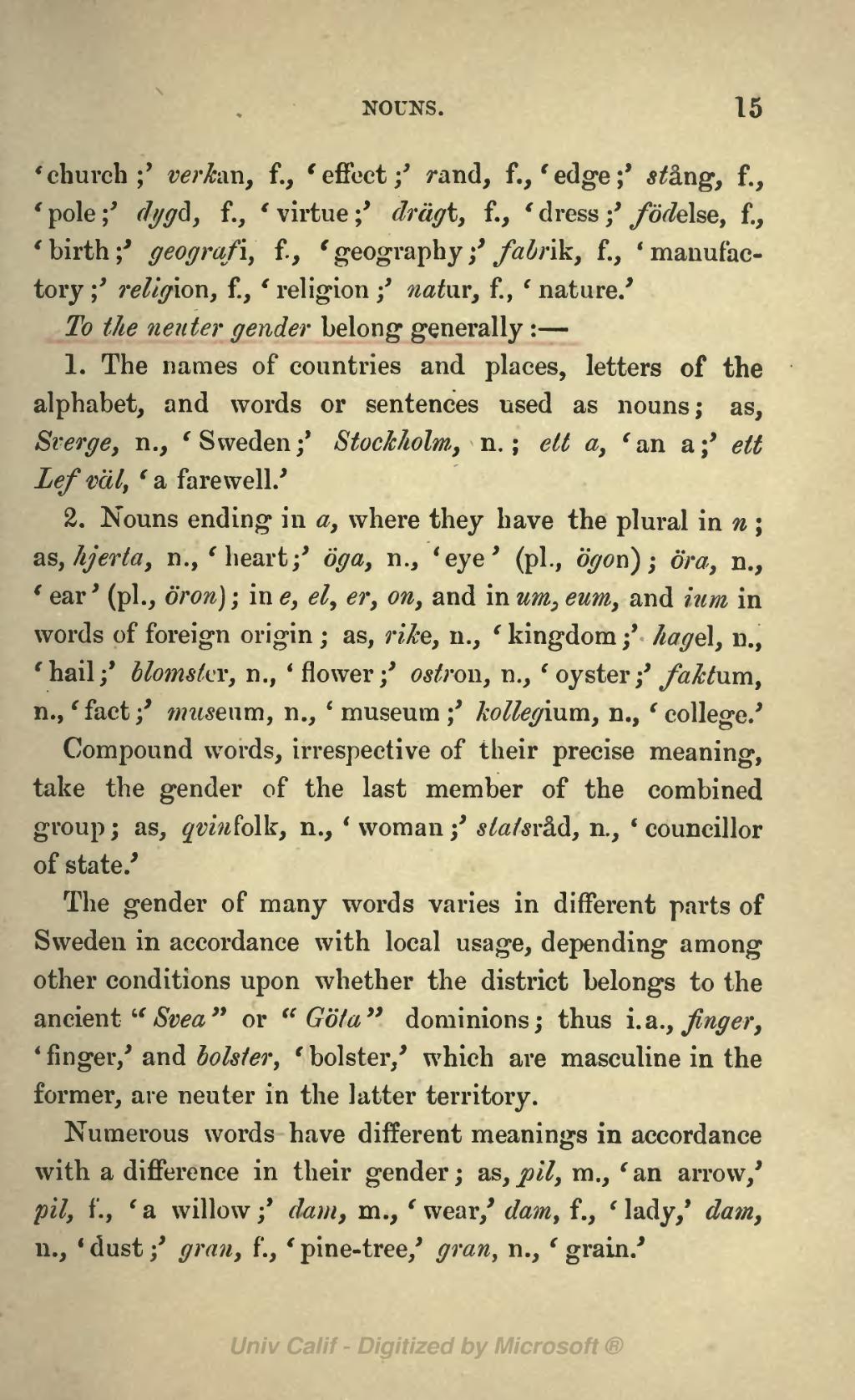'church;' verkan, f., 'effect;' rand, f., 'edge;' stång, f., 'pole;' dygd, f., 'virtue;' drägt, f., 'dress;' födelse, f., 'birth;' geografi, f., 'geography;' fabrik, f., 'manufactory;' religion, f., 'religion;' natur, f., 'nature.'
To the neuter gender belong generally:—
1. The names of countries and places, letters of the alphabet, and words or sentences used as nouns; as, Sverge, n., 'Sweden;' Stockholm, n.; ett a, 'an a;' ett Lef väl, 'a farewell.'
2. Nouns ending in a, where they have the plural in n; as, hjerta, n., 'heart;' öga, n., 'eye' (pl., ögon) ; öra, n., 'ear' (pl., öron); in e, el, er, on, and in um, eum, and ium in words of foreign origin; as, rike, n., 'kingdom;' hagel, n., 'hail;' blomster, n., 'flower;' ostron, n., 'oyster;' faktum, n., 'fact;' museum, n., 'museum;' kollegium, n., 'college.'
Compound words, irrespective of their precise meaning, take the gender of the last member of the combined group; as, qvinfolk, n., 'woman;' statsråd, n., 'councillor of state.'
The gender of many words varies in different parts of Sweden in accordance with local usage, depending among other conditions upon whether the district belongs to the ancient "Svea" or "Göta" dominions; thus i.a., finger, 'finger,' and bolster, 'bolster,' which are masculine in the former, are neuter in the latter territory.
Numerous words have different meanings in accordance with a difference in their gender; as, pil, m., 'an arrow,' pil, f., 'a willow;' dam, m., 'wear,' dam, f., 'lady,' dam, n., 'dust;' gran, f., 'pine-tree,' gran, n., 'grain.'
